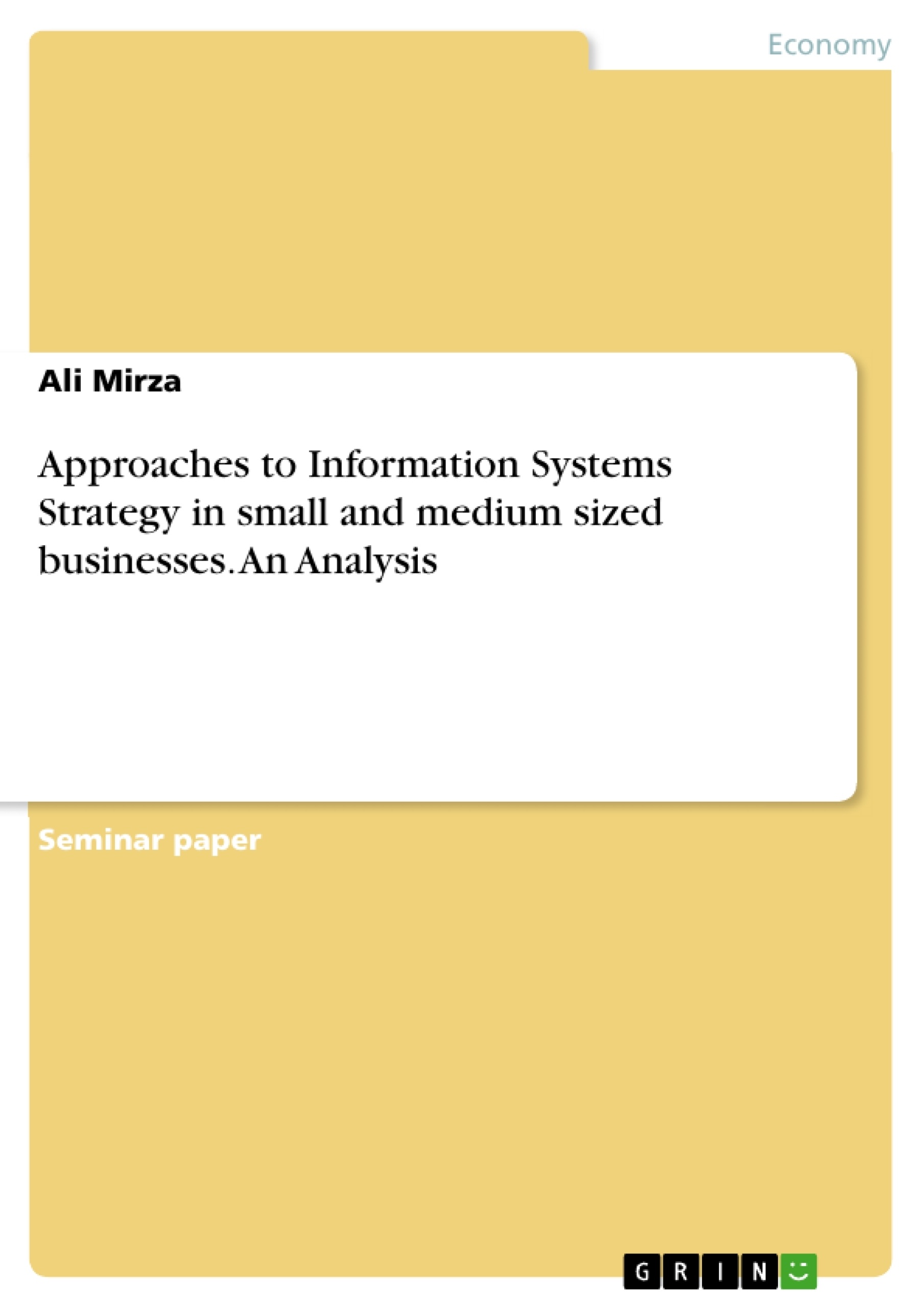The Research area of information systems strategy in small and medium sized businesses is intriguing but surprisingly under researched. Small and medium sized businesses are a significant part of a country’s economy therefore it is important for researchers and decision makers of small enterprises to initiate and establish a more appropriate understanding of information systems strategy, which can be an important contributing factor in the growth of small and medium sized businesses.
This paper reviews the existing literature available on approaches towards information systems strategy in small and medium sized businesses. The paper considers information as a resource which is strategic in nature. It asserts that Information systems Strategy proposals in small and medium sized businesses should give as much importance to issues regarding organizational changes as implementation of information systems.
Inhaltsverzeichnis (Table of Contents)
- Introduction
- Significance of Researching the Role of Information Systems in SME's
- Defining Small and Medium Sized Businesses
- Defining Information Systems
- Information Systems Investment in Small and Medium Sized Businesses
- Information Systems Strategy in Small and Medium Sized Businesses
- Character of Information Systems Strategy
- Information Systems Strategy in Small and Medium Sized Businesses
- Analysing Contemporary Tools
- Analysing Multi-Paradigm Approach to Information Systems Strategy in SME's
- Analysis of a Refined Framework for Information Systems Strategy in SME's
- Business Context
- Business Process
- Strategic Content
- Conclusion
Zielsetzung und Themenschwerpunkte (Objectives and Key Themes)
This paper aims to review the existing literature on approaches to information systems strategy in small and medium-sized businesses (SMEs). It emphasizes the strategic nature of information as a resource and argues for the importance of considering organizational changes alongside information systems implementation.
- The importance and significance of information systems strategies for SMEs
- The distinct characteristics and challenges of SMEs in developing information systems strategies
- The role of information technology in enhancing competitiveness and growth for SMEs
- The analysis of various tools and techniques for developing information systems strategies in SMEs
- The development of a refined framework for information systems strategy in SMEs, incorporating business context, processes, and strategic content.
Zusammenfassung der Kapitel (Chapter Summaries)
The paper begins by introducing the significance of researching information systems in SMEs, highlighting their importance to national economies and their unique characteristics. The first chapter defines SMEs and explores their distinct features in terms of size, scale, and scope. It also provides a brief overview of information systems and their role in SME investment.
The second chapter delves into the concept of information systems strategy in SMEs, analyzing the specific nature of this strategy and examining contemporary tools and techniques used for its development. The third chapter focuses on a multi-paradigm approach to information systems strategy in SMEs.
Chapter 5 presents a refined framework for information systems strategy in SMEs, taking into account various aspects like business context, processes, and strategic content. This framework aims to offer a more comprehensive and effective approach to developing information systems strategies within the unique context of SMEs.
Schlüsselwörter (Keywords)
The primary keywords and focus topics include information systems, small and medium-sized businesses, information systems strategy, organizational change, SME investment, competitive advantage, and framework development.
- Quote paper
- Ali Mirza (Author), 2014, Approaches to Information Systems Strategy in small and medium sized businesses. An Analysis, Munich, GRIN Verlag, https://www.grin.com/document/335780



